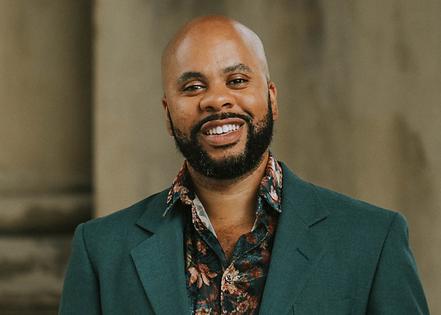Asking Eric: After wife’s death, widower is not ready for family visits yet
Dear Eric: My wife recently passed away and I am doing OK. Several of my wife's senior children keep wanting to come and visit me. How do I politely say no without hurting their feelings? When they have come before, I was stressed as to how to entertain them for a week. They think I am being helped by their visit but actually I would prefer visiting by phone and emails. Any suggestions?
– No Visitors Yet
Dear Visitors: I’m sorry for the loss of your wife. This kind of grief – recent and all-encompassing – can be very hard and we have to take it day-by-day. Loved ones are often at a loss for how to meaningfully help. So, a kind directness is going to be your best friend here. Tell the kids the truth: you love them, but you don’t have the capacity right now. Tell them that phone calls and emails are really what will help you the most right now. Sometimes people need to be given a little guidance for how to show up. They’ll appreciate the nudge, and you’ll all have better, less stressful (virtual) visits.
Dear Eric: Our daughter-in-law recently turned 40, and they had a large party, to celebrate, at their house. We were not invited but were asked to take care of their dog while they went to a family camp for a week prior to the party. We have had a somewhat contentious relationship over the years, but I thought we were doing so much better recently. We both feel hurt at having been excluded. Do you think we should just let it go? We’re feeling a bit used!
– Not the Dogsitters
Dear Dogsitters: I understand your hurt but, thinking generously, it’s possible that your daughter-in-law considered asking you to help with their dog to be a way of including you. It certainly could read as a peace offering; she wouldn’t ask someone she still has hard feelings about to care for a beloved pet. See if you can bring up your feelings in a way that doesn’t feel charged. Think of it as a temperature check. When repairing a relationship, we often have to overcommunicate to make sure everyone is on the same page.
Dear Eric: Even typing this makes me seem ungrateful, but here we go. My husband is a gift-giver; it is how he shows his love. He is also a collector of many things (as is the rest of his family) and I am not. I am a practical person by nature. Sometimes his gifts are too numerous or just impractical (for example, he gives me a gift every day of December as an "Advent calendar").
The fact of the matter is, I don't need or want all these gifts despite them being thoughtful and sweet. This is not just a Christmas event, it is for my birthday, Valentine's Day, Easter, our anniversary, etc. I have tried saying that I don't need all these things, but he says that he enjoys looking for them and giving them to me. How can we strike a compromise? I don't want to hurt his feelings, and our marriage is strong aside from this issue.
– Too Many Gifts
Dear Gifts: It might seem to some to be a champagne problem, but too much champagne can be a real problem. There are two sides to gift giving: the intention and the impact. Generally, I think it does everyone a lot of good to weigh the intention more than the impact. Or, more simply, it’s the thought that counts. But in your case the impact – an accumulation of thoughtful things that you don’t need – is crowding out the intention.
First, what’s the way that you like to show and be shown love? That’s important here. If there are ways to divert your husband’s energies so that he still gets joy from giving but you also get joy from getting, it’s a win all around.
However, if you prefer acts of service, for instance, and he loves to have something tangible to wrap and bestow, you’re still going to be a bit misaligned. In that case, you might try talking with him specifically about practicality. Sure, it might not initially light his heart up to go shopping for a new set of silverware or a replacement printer, for instance, he’ll come around when he sees you actually using and enjoying the gifts. A conversation is a great place to start, but a list will also be helpful here. You might also suggest that he look for things that you both can enjoy together. Maybe it’s a board game, maybe it’s something less tangible, like an excursion or a date night. By broadening his concept of a good gift, while narrowing the definition of a good gift for you, you’ll find yourselves aligned more.
(Send questions to R. Eric Thomas at eric@askingeric.com or P.O. Box 22474, Philadelphia, PA 19110. Follow him on Instagram and sign up for his weekly newsletter at rericthomas.com.)
©2025 Tribune Content Agency, LLC.


















Comments